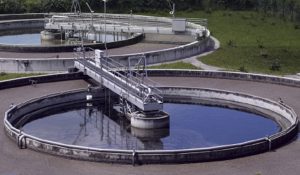Karnataka capital begins waste water surveillance to track Monkeypox virus in its sewage samples. Experts say other states should also do it.

Waste water being collected for testing (Supplied)
Wastewater surveillance in California has shown the presence of the Monkeypox virus in its sewage water. Now, Bengaluru has started to track wastewater at its sewage treatment plants (STPs) for the Monkeypox pathogen.
This is a process of monitoring the sewage generated by a population to look for the contaminant. It is recognised by the WHO as an important tool to look for the presence of any viruses in the population.

Sewage Treatment Plant (Supplied)
Dr KV Thrilok Chandra, Special Commissioner (Health), Bruhat Bengaluru Mahanagara Palike (BBMP), confirmed that the Bengaluru municipal body has already started to track the sewage samples for Monkeypox virus in almost 46 locations and said the reports may be out in 10 days.
Chandra told South First, “We have successfully been doing it for many infectious diseases and mainly for Covid. Now we have added Monkeypox also to the list and we are tracking the samples in Bengaluru. However, we have not found anything so far.”
Speaking on the importance of wastewater surveillance, Dr Rakesh Mishra, former director of the CSIR-Centre for Cellular and Molecular Biology (CCMB) in Hyderabad, and current director at the Tata Institute for Genetics and Society (TIGS) in Bengaluru, said infected people shed the virus in their feces even before they begin showing the symptoms.
This can be an early indicator of the presence of the virus. However, when the number of cases is very few, it may be difficult to find the strain in wastewater.
Mishra, however, added that it has been many years since such a pox virus has been detected in the country and said it is necessary to monitor it through sewage surveillance. He added that all states must monitor the sewage samples.
“Monitoring sewage water for any infectious disease has been the best way to track a new emergence. We have done it successfully for Covid and we are setting up surveillance for Monkeypox in Bengaluru now. We will soon follow it in other cities too,” Mishra noted.
Dr T S Selva Vinayagam, Director of Public Health in the Tamil Nadu government, told South First, “In TN as of now, they are not doing sewage surveillance, but may do so in future.”
Monkeypox was recently declared a global health emergency on 23 July by the WHO, while warning against stigma and discrimination. Experts note that since we are in the early days of the outbreak, there is not much information available about the Monkeypox virus that is currently being tracked by Bengaluru in its wastewater.
“Covid has taught us lessons on different ways of tracking the spread of the virus. With Monkeypox, surveillance still needs to pick up,” Dr US Vishal Rao, Member of Genome Sequencing Committee, and Dean, Head and Neck Oncology at HCG Hospitals, told South First.
“Since the genetic sequence of this virus is now known, we should now look for the pathogen excreted in feces and urine. Sometimes when an infected person takes a shower, the virus, being washed from the skin surface, can end up in wastewater,” Rao added.

May 01, 2024

May 01, 2024

May 01, 2024

May 01, 2024

May 01, 2024

Apr 29, 2024